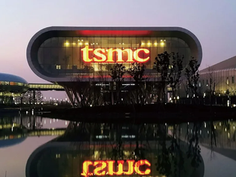Trump's Legal Crackdown Prompts Big Law Firms to Reconsider Pro Bono Commitments
- Rahaman Hadisur

- May 9, 2025
- 2 min read
Hadisur Rahman, JadeTimes Staff
H. Rahman is a Jadetimes news reporter covering the USA

A growing number of major U.S. law firms are scaling back their pro bono work in politically sensitive cases, as the Trump administration enforces executive orders restricting firms involved in litigation against the government.
Several legal aid organizations and firm insiders report that pro bono partnerships are increasingly difficult to secure for cases involving immigration, LGBTQ rights, and voting access. The chilling effect follows a series of executive actions by President Donald Trump that have barred select firms from federal buildings and pressured their clients through the withdrawal of government contracts.
"Firms are really gun shy to take on cases that may upset the administration," a senior partner at a large law firm told CNN on condition of anonymity.
The shift is notable in light of Big Law’s historical involvement in high-profile civil rights cases. Following the U.S. withdrawal from Afghanistan in 2021, hundreds of corporate lawyers helped file asylum petitions. In the wake of the Guantanamo Bay detainee list release in 2004, large firms mobilized to offer representation. Similarly, transgender individuals have frequently relied on large firm pro bono support for legal name changes.
The current political climate, however, has cast a shadow over such efforts. The League of United Latin American Citizens (LULAC), a long-standing pro bono client of Paul, Weiss, Rifkind, Wharton & Garrison, was briefly dropped by the firm after it became a target of the Trump administration. The decision came shortly before the firm reached a settlement with the White House to avoid further sanctions.
Though Paul Weiss later reinstated its representation of LULAC, the incident is viewed as a bellwether. Several other firms, including Skadden Arps, have reportedly entered into similar agreements, pledging tens of millions in pro bono services tied to government-approved causes such as anti-antisemitism initiatives and veterans' affairs areas already well-supported in legal circles.
Critics argue the settlements represent a retreat from advocacy in politically contentious areas. “They now have a new partner in vetting every pro bono decision they make: Donald Trump,” said James Sandman, a former president of the Legal Services Corporation and a long-time pro bono advocate.
Meanwhile, law firms like Perkins Coie and Jenner & Block continue to appear in court filings opposing administration policies, but observers note their numbers have diminished.
The legal community is awaiting further guidance following a recent executive order directing the Attorney General to develop a strategy for enlisting private-sector legal support for law enforcement officers facing civil suits.
While the long-term impact on public interest litigation remains uncertain, many fear a fundamental shift in the role of Big Law in defending civil liberties during politically fraught times.











































Comments